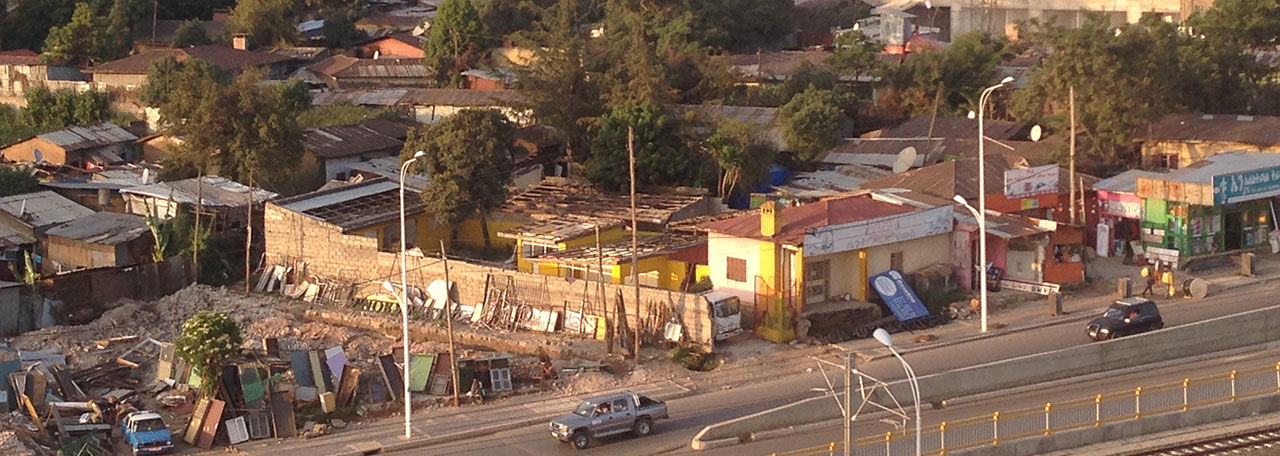Expert Group on Identifying Slum and Non-slum Enumeration Areas
Background
The case for identification of slums as specific areas within city precincts turns on the idea that space is an important determinant of many aspects of urban life including health, well-being and net of poverty. The crowded and unsanitary conditions in slums, as well as the intimately shared social environment, indicates that people living in slums are exposed to risks that differ from those living elsewhere. Likewise, they benefit collectively from interventions at the cluster level where a given service may impact on many people and where herd effects (e.g interactions between health and behavior among people in a vicinity) are likely to be particularly strong.
While space is salient net of poverty, poverty remains salient net of space. They are both important. However, slums and poverty are only partially correlated, with well-to-do people living in the slums and poor people living among much well-off people elsewhere. Simply dividing people into those living in urban versus rural areas is too coarse; there are strong arguments for a more granular approach that identifies slum areas. This point is recognized in Sustainable Development Goal 11 to make cities and human settlements inclusive, safe, resilient and sustainable.
Point of contact
Robert P Ndugwa
Head, Data and Statistics Section, Research and Capacity Development Branch
United Nations Human Settlements Programme
P.O.Box 30030, GPO Nairobi 00100, Kenya
Tel +254 20 762 3342, Mob + 254 720 492021
e-mail: robert.ndugwa@un.org
Establishing a group on slum spatial definitions and identifications slum and non-slum enumeration areas
This Group was first proposed by the participants who attended a Bellagio EGM on Slums Definitions in November 2017, and supportive conclusions documented in two Lancet papers on slums. The Untied Nations Statistical Commission endorsed the establishment of this expert group on its 50th session in 2019.
Mandate and TORs
The overall objective of the Slum and Non-slum Enumeration Areas Identification Expert Group is to develop standardized tools, definitions and methods for producing slum data based on space-based definitions, where slum spaces are identified a priori, and risk factors associated with slums residence outcomes examined independently of the definitions. This group is now composed of UN agencies 1 , other multi-lateral agencies2 , NGOs3 , universities4 , and selected countries5 . The group works towards encouraging countries to adopt new methods of identifying slums spaces in a population and housing census and other national surveys, while also playing a leading role in the development and communication of new standards and methodologies, and best practices related to slums identifications. The Group is also addressing existing challenges and deficits of data on slums. The Group will initially operate for a five-year period, from 2018 when it was set up to 2023.
Current chair and members of the expert group:
The group is currently chaired by UN-Habitat with the new chair from an NSO expected in 2020.
National Statistical office: South Africa, Kenya, Uganda, Bangladesh, India, Gabon, Ghana, Liberia, Mexico, Brazil, etc.
Agencies and other partners: UN-Habitat, WHO, EC, UNFPA, Warwick University, APHRC, Bill and Melinda Gates Foundation, World Bank, GPSDD, WorldPop, Flowminder, MAUPP-Brussels, ITC Netherlands
Meetings
Since 2017, the group has met twice via online tools to discuss a work plan for the next 5 years, funding mechanisms and organizing the first general meeting at the sidelines of the World Urban Forum in Feb 2020. The first 2 WebEx meetings were held in 2019 to define the name of the group, and address leadership and fundraising shortages.
Reports to the Commission
There are no reports so far to the commission. The first major report is expected in 2021.
1 UN-HABITAT, UNFPA.
2 European Commission, Bill and Melinda Gates Foundation.
3 African Population and health research center.
4 Leeds university, Warwick University, Makerere University, NY University, University of Southampton .
5 Brazil, Bangladesh, South Africa, Kenya, Malawi, India.
Last updated 15 November 2019
